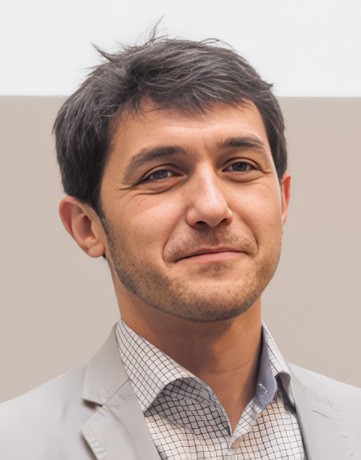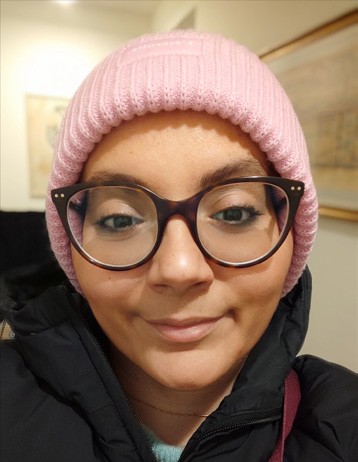Special Issue: Open Science in its many forms - Open Proposals: Heresy or Trend?
Newsletter

Bionote
Paola Masuzzo has a PhD in Bioinformatics from Ghent University, in Belgium, and a big passion for data and open knowledge. She has participated in many international projects for the promotion of open research practices, especially for FAIR data and open source code. She is currently a data scientist for a corporate organization, an independent researcher by the Institute for Globally Distributed Open Research and Education (IGDORE), and vice president of onData.
Ivo Grigorov has a PhD in Marine Sciences, full-time fundraiser for UN SDG 13 and 14 related research, and advocate for openness since 2006.
Open Proposals might be as obvious as daylight in disciplines where preregistration is the norm, but not far from heresy in others. So who is right? And who should early career researchers follow?
In moments of transition of best practice, it is ok to feel nervous and uncertain. As life would have, the answer is not always black or white. The best lessons and advice are actually hidden in the nuances, each nuance, a silver bullet solution to a specific situation.

Turning back time…
As “open research” became a thing in the early 2000s, largely thanks to the #OpenAccess movement, different disciplines moved in at different rates. “Climate sciences” adopted #OpenData to a degree that may have been perceived as progressive, at a time when proponents argue “climate change accelerates, should not our practice of sharing data at least match that pace!”. Even the life sciences field (encompassing molecular biology, genetics, pharmacology, and biomedical research) has historically lagged behind other scientific domains in embracing open science practices.
Other disciplines, however, did, and still go, way further. Preregistration (the process of upfront declaration of research hypothesis, method, and research plan) in clinical trials may be as obvious as day [1]. Attempt to transplant those progressive ideas into disciplines focused on uncovering the unknown, and you may find yourself entangled in profound existential debates.
Back in 2018, however, two large projects went for broke. MISSION ATLANTIC [2] and AtlantECO [3], two large HorizonEU Consortia of 30+ partners, in the Natural Sciences, would take the idea of openly publishing their proposals, as a first product of the research.
Wrangling with attitudes from times gone by…
“This is not how we did science!” versus “Why not!” were the predictable polarised reactions, very much clustered around generational lines. But to the credit of the wiser generation, they objected, they listened to arguments they didn’t necessarily subscribe to, and in the end, agreed to disclose proposals, against their gut feelings.
Other (and sometimes very reasonable) objections included “What about financial & legal data? Does that need to be disclosed?” (the answer here is no!). And then there were “What happens if someone sees how disorganized we are?” or “But then someone can copy us!”.
Ultimately, through debate, even the strongest opponents, across generational lines, agreed that on balance, sharing the research plan with unknown potential collaborators created greater opportunities for impact than succumbing to anxieties and fears.
Back in the pre-AI age, even the strongest opponents of the idea agreed that our future collaborators should be able to quickly and efficiently see what research we are doing, how, and when, so they can best engage with us serendipitously.
For the convinced, #OpenProposals would allow data-savvy collaborators we had not yet met, to cross-compare a multitude of research plans, efficiently and easily. And based on that, identify new research gaps, but also engage with us in new collaborations.

The Bottom Line … in an AI age!
What of all of this is relevant to an ECR, wrestling with individual grants, in a high- competition environment?
Should YOU do #OpenProposals systematically? What if someone copied you? Plagiarized your ideas? All these are valid questions…but not new ones! Just think back to the #OpenAccess movement 20 years ago dispelled those myths in the context of publishing postprints of manuscripts, when only physicists and mathematicians did that.
The best answers are not the binary ones, but the nuanced ones, each nuance, a silver bullet solution to a specific situation.
Dogmatic #OpenProposal practice may well get us all into trouble. Publishing unfunded ideas as #OpenProposals may well “get the wind out of your sails”. Once proposals are secured as projects, #OpenProposals can be the first recognized time-stamp of IP ownership of your great ideas.
OpenProposals can also boost your own accountability. Think of it as making a promise to your research community and the public.
Issues still remain to be debated [4], and best practices established [5], in the context of AI. However, as “source citation” capabilities of all AI tools improve, so will the attribution of your work. And imagine what your citation and collaboration revenue stream might look like in that future!
But if, after all, you ache for a categorical answer, here is one. Ignoring #OpenProposals is definitely (in our opinion of this author) a career disadvantage. Early Career Researchers should have the skill set and courage to do better than our mentors, but use the same critical thinking (and common sense!) to avoid the dogmatic application of any future trend.
Disclaimer: The authors are far from neutral on the topic of #open anything. The article showcases an effort to push our own comfort limits (sometimes too far), only to step back, learn from it, and make a conscious effort to report back actionable advice for our future selves (that is hopefully closer to reality than our own current biases).
Ivo Grigorov
Grants Support & Open Science,
Technical University of Denmark
ivgr@aqua.dtu.dk
@OAforClimate
Paola Masuzzo
Independent researcher at IGDORE
Vice president at onData
References
1. Pre-registration How & Why: https://www.cos.io/initiatives/prereg
2. Open Proposal for MISSION ATLANTIC, https://doi.org/10.5281/zenodo.4916511
3. Open Proposal for AtlantECO, https://doi.org/10.5281/zenodo.3725912
4. Baker, S. (2024). AI might help science break out of narrow funding focus. Nature Index. https://www.nature.com/nature-index/news/ai-might-help-science-break-out-narrow-funding-focus
5. European Commission. (2024). Guidelines on the responsible use of generative AI in research developed by the European Research Area Forum. https://research-and-innovation.ec.europa.eu/news/all-research-and-innovation-news/guidelines-responsible-use-generative-ai-research-developed-european-research-area-forum-2024-03-20_en.